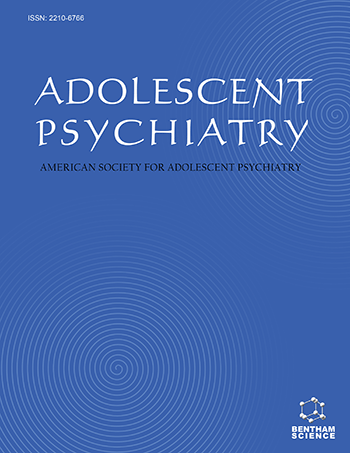Abstract
Until bright, creative, and alienated adolescents learn to make reasonable decisions, they will not engage in proactive, constructive, and creative change. Grounded in principles of reality therapy and choice theory, compassionate confrontation psychotherapy (CCP) stresses the concepts of conscious choice and acceptance of responsibility for ones actions. CCP provides a unique therapeutic experience to induce change. Viewed from this pragmatic and humanistic perspective, the overuse of psychiatric diagnoses and psychopharmacologic treatments inadvertently relieve gifted adolescents from accepting accountability for their choices. Evidence of the success of CCP can be found in the high percentage of alumni of the John Dewey Academy who are admitted to and complete their educations at leading colleges and graduate schools. Further evidence is provided by their academic performances at those institutions of higher learning.
Keywords: Adolescent psychotherapy, confrontation in psychotherapy, gifted adolescents, adolescent behavior disorders, CCP, alienated, Boarding School, Self-Destructive, Compassionate, gifted
Adolescent Psychiatry
Title: Compassionate Confrontation Psychotherapy: Working with Gifted but Self-Destructive Adolescents in a Therapeutic Boarding School
Volume: 1 Issue: 3
Author(s): Thomas Edward Bratter
Affiliation:
Keywords: Adolescent psychotherapy, confrontation in psychotherapy, gifted adolescents, adolescent behavior disorders, CCP, alienated, Boarding School, Self-Destructive, Compassionate, gifted
Abstract: Until bright, creative, and alienated adolescents learn to make reasonable decisions, they will not engage in proactive, constructive, and creative change. Grounded in principles of reality therapy and choice theory, compassionate confrontation psychotherapy (CCP) stresses the concepts of conscious choice and acceptance of responsibility for ones actions. CCP provides a unique therapeutic experience to induce change. Viewed from this pragmatic and humanistic perspective, the overuse of psychiatric diagnoses and psychopharmacologic treatments inadvertently relieve gifted adolescents from accepting accountability for their choices. Evidence of the success of CCP can be found in the high percentage of alumni of the John Dewey Academy who are admitted to and complete their educations at leading colleges and graduate schools. Further evidence is provided by their academic performances at those institutions of higher learning.
Export Options
About this article
Cite this article as:
Edward Bratter Thomas, Compassionate Confrontation Psychotherapy: Working with Gifted but Self-Destructive Adolescents in a Therapeutic Boarding School, Adolescent Psychiatry 2011; 1 (3) . https://dx.doi.org/10.2174/2210676611101030227
| DOI https://dx.doi.org/10.2174/2210676611101030227 |
Print ISSN 2210-6766 |
| Publisher Name Bentham Science Publisher |
Online ISSN 2210-6774 |
 19
19
- Author Guidelines
- Graphical Abstracts
- Fabricating and Stating False Information
- Research Misconduct
- Post Publication Discussions and Corrections
- Publishing Ethics and Rectitude
- Increase Visibility of Your Article
- Archiving Policies
- Peer Review Workflow
- Order Your Article Before Print
- Promote Your Article
- Manuscript Transfer Facility
- Editorial Policies
- Allegations from Whistleblowers
Related Articles
-
Psychological Distress Among Youth Probationers: Using Social Determinants of Health to Assess Suicidal Thoughts and Behaviors
Adolescent Psychiatry Social Media Use among Adolescents: Benefits and Risks
Adolescent Psychiatry Child and Adolescent Mental Health in the Juvenile Justice System in India: Challenges and Initiatives
Adolescent Psychiatry Effects of Prefrontal 40 Hz-Centered EEG Band Neurofeedback on Emotional State and Cognitive Functions in Adolescents
Adolescent Psychiatry Childhood Hospitalisations for Physical Disease and Risk of Mental Disorders During Adolescence and Early Adulthood
Adolescent Psychiatry Male Adolescent Treatment Outcome: A Case Series of Eight Men Treated with Psychoanalytic Psychotherapy
Adolescent Psychiatry Pharmacologic Treatments in “Prodromal Psychosis:” Making Clinical Decisions in the Absence of a Consensus
Adolescent Psychiatry Special Invited Article Concussion, Sports and Psychiatry
Adolescent Psychiatry Psychotherapy, Suicide and Depression, Body Dysmorphic Disorder, Aggression, an Unusual Case, and the Case for Harm Reduction in Treating Adolescent Substance Abuse
Adolescent Psychiatry Anti-NMDA Receptor Encephalitis in a Patient with a History of Autism Spectrum Disorder
Adolescent Psychiatry The Role of Complementary and Alternative Medicine in Adolescent Substance Use Disorders
Adolescent Psychiatry The Bullying Prevention Plan: An Approach to Youth who Bully Others
Adolescent Psychiatry Global Child and Adolescent Mental Health Needs: Perspectives from a National Tertiary Referral Center in India
Adolescent Psychiatry A Comparison of Child Mental Health Systems in France and the United States
Adolescent Psychiatry Destruction as a Means of Survival: The Paradigm of Modern Psychopathology
Adolescent Psychiatry Multicultural Issues in Child and Adolescent Psychiatry in Ireland
Adolescent Psychiatry Using Attachment Perspectives in Self Psychological/Intersubjective Clinical Work with Adolescents
Adolescent Psychiatry Assessment of Adolescent Personality Disorders Through the Interview of Personality Organization Processes in Adolescence (IPOP-A): Clinical and Theoretical Implications
Adolescent Psychiatry Childhood Psychiatric Disorders in North-India: Prevalence, Incidence and Implications#
Adolescent Psychiatry Gender Differences in the Suicide Attempts of Adolescents in Emergency Departments: Focusing on Individuals with Autism Spectrum Disorder
Adolescent Psychiatry

























